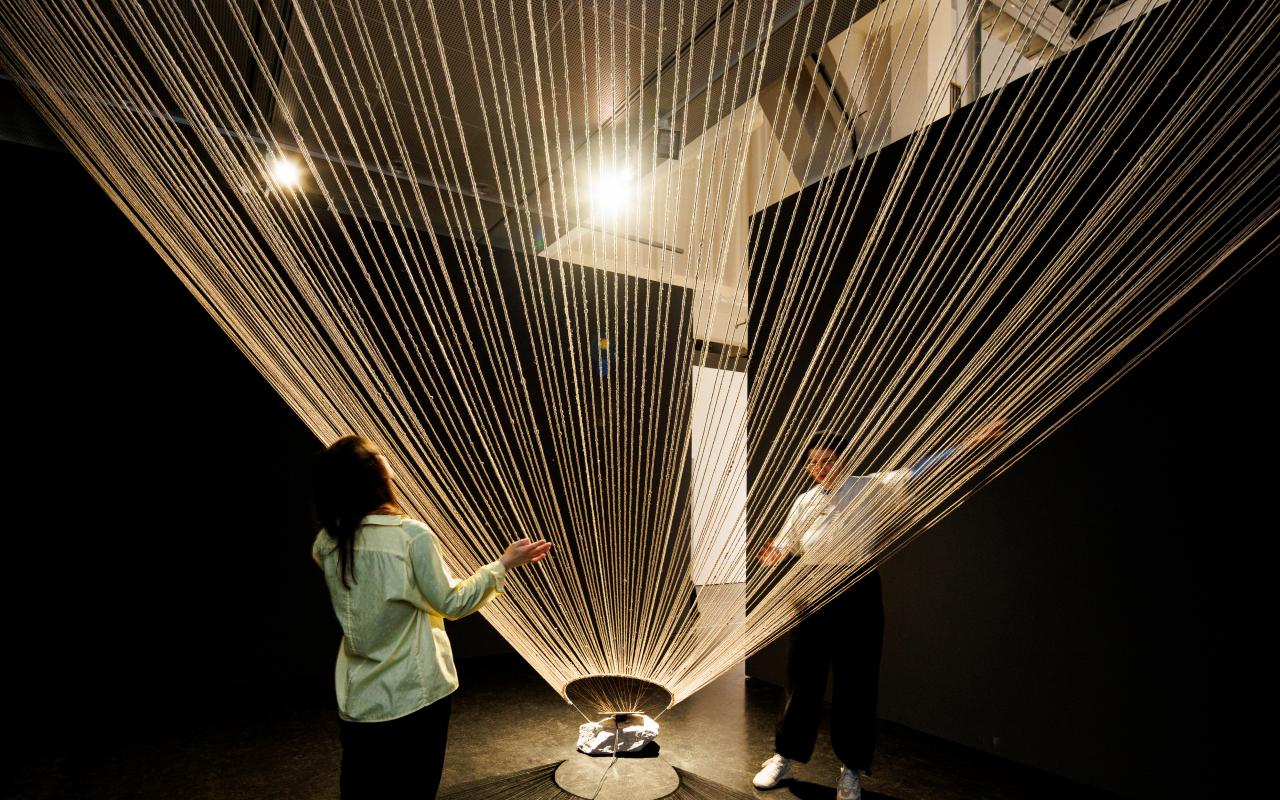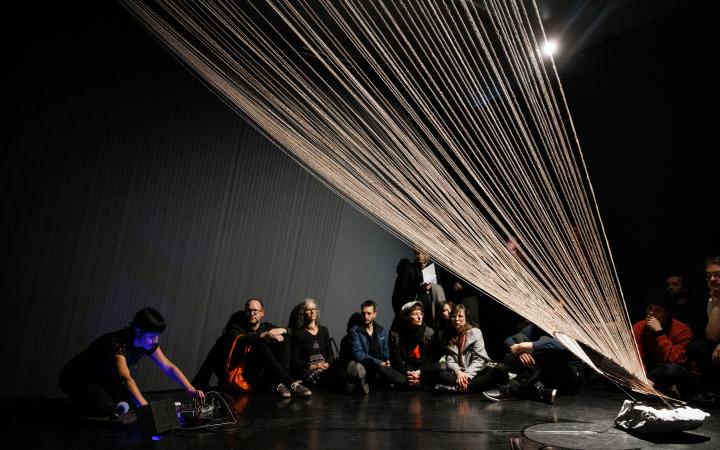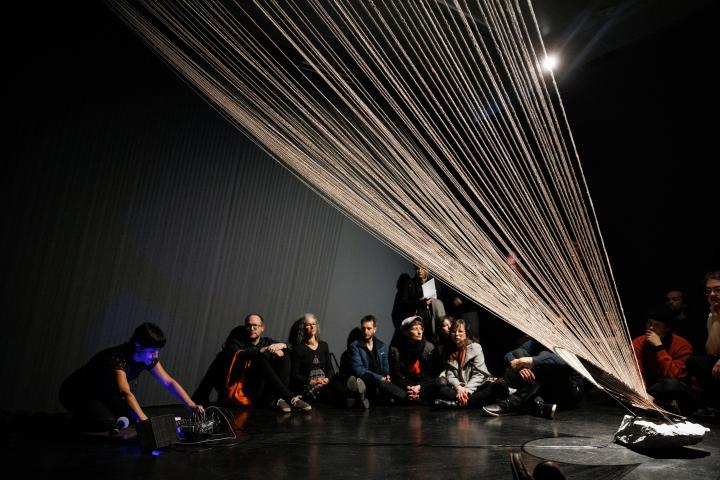Constanza Piña Pardo
Khipu: Electrotextile Prehispanic Computer

- Artists
- Constanza Piña Pardo
- Title
- Khipu: Electrotextile Prehispanic Computer
- Year
- 2018
- Medium / Material / Technic
- Alpaca wool, copper wire, metal bow, electronic circuit
-
»Khipu« is the name for an Inca thread art based on a binary coding system. Material selection and knot formation were the design means for storing information. The khipu technique was common in the Inca Empire, but according to Piña Pardo's information, it was destroyed by Spanish colonialists or pre-Columbian cultures. Only very few copies from the Inca period have survived, just as their contents cannot be decoded.
The feminist reinterpretation by Piña Pardo and her collaborators consists in interpreting the thread as a computer. Based on a system developed by a group of women at Harvard University around 1900 to classify astronomical constellations, »Khipu« was created. The installation links women's work as "calculators/computers" with textile work that was traditionally practiced by women.
From a stone with a control circuit board - representing the constellation of stars that prevailed in the sky during the creation of the artwork - a fan of threads stretches upwards. The individual threads are made of alpaca wool and copper wire. Connected to an electro-magnetic field amplifier, they ensure that the surrounding energies are made audible. The visitors:inside influence the drone sound by their presence and touching the antenna. The noise represents what has been lost in history - the knowledge and language of the ancestors.


